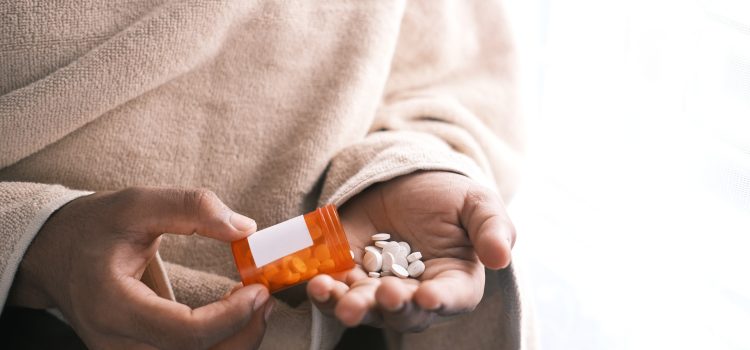
Are you struggling with opioid addiction and don’t know where to turn? You’re not alone. Addiction can be a tough battle, but it’s one that you can win. Our team has compiled the top ten tips for overcoming opioid addiction, so you can get back on track and live your best life. From seeking professional help to building a support system, we’ve got everything you need to take the first step towards recovery. So let’s dive in and start making positive changes today!
Understanding Opioid Addiction
It’s no secret that the opioid epidemic has taken a toll on American lives. In 2017, opioids were involved in 47,600 overdose deaths in the United States, which is more than any other year on record.1 According to the National Institute on Drug Abuse (NIDA), about 130 people die every day from overdosing on opioids.2
The first step to overcoming opioid addiction is understanding it. Opioid addiction is a chronic, relapsing brain disease characterized by compulsive drug seeking and use despite harmful consequences.3 People with opioid addiction may feel like they can’t control their drug use and are unable to stop using even though they want to.
While there are many factors that contribute to the development of addiction, it typically begins with exposure to an addictive substance. For some people, this may happen after taking opioids for pain relief following an injury or surgery.4 When taken as prescribed by a doctor, opioids can be safe and effective for pain management. But because they produce pleasureable effects in the brain, they can also be misused.
People who misuse opioids may start taking them more often or in higher doses than prescribed. They may also take them by crushing and snorting them or injecting them into veins (a process called “shooting up”).5 This can lead to extremely dangerous consequences like overdose and death.
If you or someone you know is struggling with opioid addiction, there is help available. There are many treatment options that can be
The Dangers of Opioid Addiction
Opioid addiction is a serious problem that can have devastating consequences. If you or someone you know is struggling with an opioid addiction, it’s important to be aware of the dangers and get help as soon as possible.
Some of the dangers of opioid addiction include:
-Increased risk of overdose: Opioids are highly addictive and can lead to accidental overdoses. Overdose symptoms can include trouble breathing, extreme drowsiness, and loss of consciousness. If not treated immediately, an overdose can be fatal.
-Damage to vital organs: Opioids can damage your liver, kidneys, and other vital organs. This damage can be irreversible and may lead to organ failure.
– mental health problems: Opioid addiction can cause or worsen mental health problems such as depression and anxiety. It can also lead to memory problems and difficulty concentrating.
10 Tips to Help You Overcome Opioid Addiction
If you or someone you know is struggling with an opioid addiction, there are some things that you can do to help them overcome it. Here are a few tips:
1. Talk to them about their addiction and let them know that you are there for them. This can be a difficult conversation to have, but it’s important that they know they are not alone.
2. Help them find a treatment program that will work for them. There are many different programs available, so it’s important to find one that will fit their needs.
3. Be there for them during their treatment. Addiction is a difficult thing to overcome, and your support can make all the difference.
4. Once they have completed treatment, help them stay on track by attending support groups or therapy sessions together. relapse is always a risk, but having a support system in place can make it much easier to overcome.
Where to Find Help for Opioid Addiction
If you or someone you know is struggling with an opioid addiction, there is help available. Here are some places to start:
-Your primary care doctor or a local mental health provider can offer guidance on treatment options and make referrals to specialized care if needed.
-Substance abuse treatment centers offer detoxification and rehabilitation programs specifically for those struggling with opioid addiction.
-12-step groups such as Narcotics Anonymous provide support and community for those in recovery.
-There are many online resources available that provide information on overcoming addiction, including blogs, forums, and support groups.










